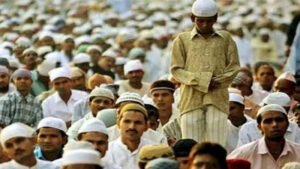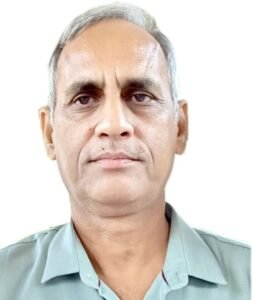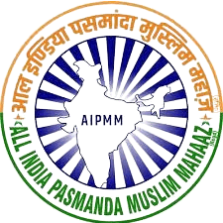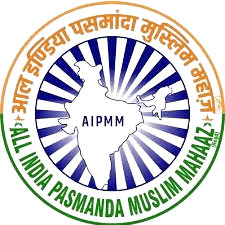 To understand the Pasmanda Muslim community and their social, economic, and religious conditions, it is essential to examine the structure of Indian Muslim society, its historical background, and contemporary challenges in depth. The All India Pasmanda Muslim Mahaz (AIPMM) is a pivotal organization dedicated to addressing the issues of the Pasmanda Muslim community, emphasizing social justice, equality, and an approach rooted in the core principles of Islam. This article elaborates on the status of the Pasmanda Muslim community, their struggles, the role of AIPMM, and their efforts toward socio-economic reform.
To understand the Pasmanda Muslim community and their social, economic, and religious conditions, it is essential to examine the structure of Indian Muslim society, its historical background, and contemporary challenges in depth. The All India Pasmanda Muslim Mahaz (AIPMM) is a pivotal organization dedicated to addressing the issues of the Pasmanda Muslim community, emphasizing social justice, equality, and an approach rooted in the core principles of Islam. This article elaborates on the status of the Pasmanda Muslim community, their struggles, the role of AIPMM, and their efforts toward socio-economic reform.
Pasmanda Muslim Society: A Caste-Based Group and the Demand for Social Justice
Definition and Structure of ‘Pasmanda’- The term ‘Pasmanda’ originates from Persian, meaning “those left behind” or “the oppressed.” In Indian Muslim society, Pasmanda refers to communities that are socially, economically, and educationally marginalized. These primarily include Muslim communities categorized under Other Backward Classes (OBC), Scheduled Castes (SC), and Scheduled Tribes (ST). Examples include Ansari (weavers), Mansoori (textile traders), Qureshi (butchers), Salmani (barbers), Bakho, Dhobi, Lalbegi, Mirasi, Banjara, Tadvi, and others. These communities are of Indian origin and are also known as Ajlaf (backward Muslims) and Arzal (Dalit Muslims).
The Indian Muslim society exhibits a clear caste structure, despite some denying its existence. It is broadly divided into three main groups:
1. Ashraf: The upper-class Muslims, including communities like Sayyid, Sheikh, Pathan, and Mughal, who claim foreign descent (Arab, Turk, Afghan) and constitute about 15% of the Muslim population.
2. Ajlaf: Socially and economically weaker Muslim communities, such as Ansari, Qureshi, Salmani, etc., associated with artisanal or professional occupations.
3. Arzal: The lowest social stratum, comprising Dalit Muslim communities like Dhobi, Lalbegi, Mirasi, etc.
The Pasmanda movement unites these Ajlaf and Arzal communities, which make up approximately 85% of the Indian Muslim population. It is dedicated to improving their socio-economic conditions and safeguarding their rights.
Historical Marginalization of Pasmanda Society- The marginalization of the Pasmanda Muslim community predates India’s independence. During the freedom struggle, leaders like Abdul Qayyum Ansari, Maulana Ali Hussain Asim Bihari, Niyamatullah Ansari, and Bhaiyaji Qureshi advocated for Pasmanda interests through organizations like the Momin Conference, demanding social equality within Muslim society. In the 1980s, the All India Muslim OBC Organization in Maharashtra fought to include Pasmanda Muslims in the OBC list, resulting in reservation benefits for many communities. In the 1990s, leaders like Dr. Ejaz Ali, Ali Anwar, and Shabbir Ansari further strengthened the movement.
The credit for bringing the Pasmanda discourse to national and international platforms largely goes to India’s Honorable Prime Minister, Shri Narendra Modi. Through various platforms, particularly the Bharatiya Janata Party (BJP) and other governmental forums, he has highlighted the issues of the Pasmanda Muslim community at the national level. His government has taken steps to provide political representation to the Pasmanda community, such as appointing Pasmanda leaders to significant positions. The AIPMM hopes that Shri Narendra Modi will continue to take effective measures in the future to promote the education, health, political participation, economic development, and scientific outlook of the Pasmanda community.
However, the Ashraf Muslim class has consistently marginalized the Pasmanda community. Major Muslim organizations like the All India Muslim Personal Law Board and Jamiat Ulema-e-Hind, which are predominantly Ashraf-led, have negligible Pasmanda representation. These organizations have often used the Pasmanda community merely as a vote bank, neglecting their socio-economic development.
Role of All India Pasmanda Muslim Mahaz (AIPMM)- The AIPMM was founded in 1998 by Ali Anwar in Patna. However, its activities weakened after Ali Anwar became a Rajya Sabha member through the NDA coalition. In September 2021, Muhammad Yunus, a former student leader of Aligarh Muslim University, along with other Pasmanda community members, reconnected with Pasmanda Muslims across the country via Zoom meetings. Together with Advocate Parvez Hanif (current National President), Sharik Adib Ansari (current National Working President), Mukhtar Ansari (former National President), Waqar Hawari (former National General Secretary), Kalam Ansari (National General Secretary), Noor-ul-N Momin (National Vice President), Wasim Raini (State President, Uttar Pradesh), and others, they revived and registered the AIPMM in Aligarh. Since then, the organization has expanded its operations to 12 states and established offices in four states: Lucknow (Uttar Pradesh), Phulwari Sharif (Patna, Bihar), Ranchi (Jharkhand), and Delhi.
AIPMM is a nationalist organization dedicated to the social, educational, economic, and political upliftment of the Pasmanda Muslim community. Its primary goal is to mainstream the Pasmanda community and protect their rights. The organization’s ideology is rooted in the core principles of Islam, such as:
– Sulh-e-Hudaibiya: Resolving disputes through peace, coexistence, and dialogue.
– Misaq-e-Madina: Promoting social equality and harmony among diverse communities.
– The Prophet’s Last Sermon: Emphasizing human rights, equality, and social justice.
– Lakum Deenakum Waliyadeen: Upholding religious freedom and coexistence.
AIPMM believes that “Taqwa” (piety and morality) is the sole basis for superiority in Islam, not caste, race, or social status. The organization challenges the dominance of the Ashraf Muslim class and runs awareness campaigns to secure the rights of the Pasmanda community. While it does not interfere in personal matters (such as marriages), it opposes the Ashraf class’s dominance in community and social decisions.
Challenges and Discrimination Faced by Pasmanda Society
The Pasmanda Muslim community faces several serious challenges:
1. Caste-Based Discrimination: Caste discrimination is deeply entrenched in Muslim society. In many areas, Pasmanda Muslims are denied entry into mosques or the right to form social ties (e.g., intermarriage) with Ashraf Muslims. Separate graveyards are often designated for them, symbolizing social exclusion.
2. Political Neglect: From 1947 to 2019, out of 400 elected Muslim MPs in India, only 60 were from the Pasmanda community, highlighting the dominance of the Ashraf class in Muslim leadership.
3. Economic and Educational Backwardness: According to the 2006 Sachar Committee Report, Muslims are the most backward in education, employment, and health, with the Pasmanda community being the worst affected. For instance, literacy rates and higher education levels among Pasmanda communities are significantly low.
4. Misuse of Waqf Properties: Waqf properties, meant for the welfare of poor Muslims, often benefit the Ashraf class. AIPMM and other Pasmanda organizations support the Waqf Amendment Bill, as it could enhance transparency and benefit the Pasmanda community.
5. Derogatory Treatment by Ashraf Class: Some members of the Ashraf Muslim community use derogatory language and discriminatory behavior toward Pasmanda communities, undermining social unity.
Key Initiatives and Achievements of AIPMM
AIPMM has taken significant steps for the upliftment of the Pasmanda community:
1. Educational Awareness: Through the ‘Pasmanda Awareness Campaign,’ the organization has promoted education in hundreds of villages, focusing on children’s education, women’s literacy, and higher education.
2. Health Camps: AIPMM has organized numerous free health camps to provide healthcare services to poor Pasmanda families.
3. Demand for Caste-Based Census: The organization has called for a caste-based census within the Muslim community to accurately assess the population and socio-economic conditions of the Pasmanda community.
4. Promoting Social Equality: AIPMM encourages the Pasmanda community to assert their rights rather than submitting to the Ashraf class. It upholds “Taqwa” as the basis for superiority.
5. Nationalist Approach: The organization repeatedly reaffirms its commitment to the Indian Constitution and nationalist values, working to integrate the Pasmanda community into the national mainstream.
Pasmanda vs. Ashraf: Comparison and Solutions- The question raised about whether the Pasmanda community’s focus on caste makes it different from the Ashraf community is significant. AIPMM’s stance is clear: it does not promote casteism but advocates for eliminating caste-based discrimination and ensuring social equality. The organization demands that the Ashraf community acknowledge and rectify their historical mistakes, which include:
– Using the Pasmanda community as a vote bank.
– Hindering their educational and economic progress.
– Limiting their participation in religious institutions like mosques and Waqf boards.
– Using derogatory language and behavior toward Pasmanda communities.
AIPMM believes that Muslim society should adopt the core principles of Islam, particularly the Prophet’s Last Sermon, which states: “No Arab is superior to a non-Arab, no white to a black, and no rich to a poor, except in Taqwa.” The organization does not support abusive language or confrontation but promotes dialogue, cooperation, and reform. It urges the Ashraf community to acknowledge their mistakes and work with the Pasmanda community toward socio-economic equality.
Conclusion: The Pasmanda Muslim community represents the largest and most neglected segment of India’s Muslim population. Organizations like the All India Pasmanda Muslim Mahaz are tirelessly working to raise awareness, protect their rights, and establish social equality. This movement not only seeks reform within Muslim society but also demonstrates its commitment to the Indian Constitution and nationalist values. To empower the Pasmanda community, the following steps are crucial:
– Expanding access to education and healthcare.
– Conducting a caste-based census to assess the true condition of the Pasmanda community.
– Ensuring transparent and equitable use of Waqf properties.
– Providing adequate representation for the Pasmanda community in political and religious leadership.
Ultimately, embracing the core Islamic principles of Taqwa and social justice can bring unity, prosperity, and equality to Muslim society. AIPMM and other Pasmanda organizations are vital steps toward making not only Muslim society but also Indian society as a whole more inclusive and just.
Muhammad Yunus
Chief Executive Officer,
All India Pasmanda Muslim Mahaz

